To understand where the Israeli-Palestinian conflict goes from here, look on Airbnb
It’s the 50th anniversary of the Six-Day War this week, and inevitably the media are filling up with musings on the current state of the Israeli-Palestinian peace process.
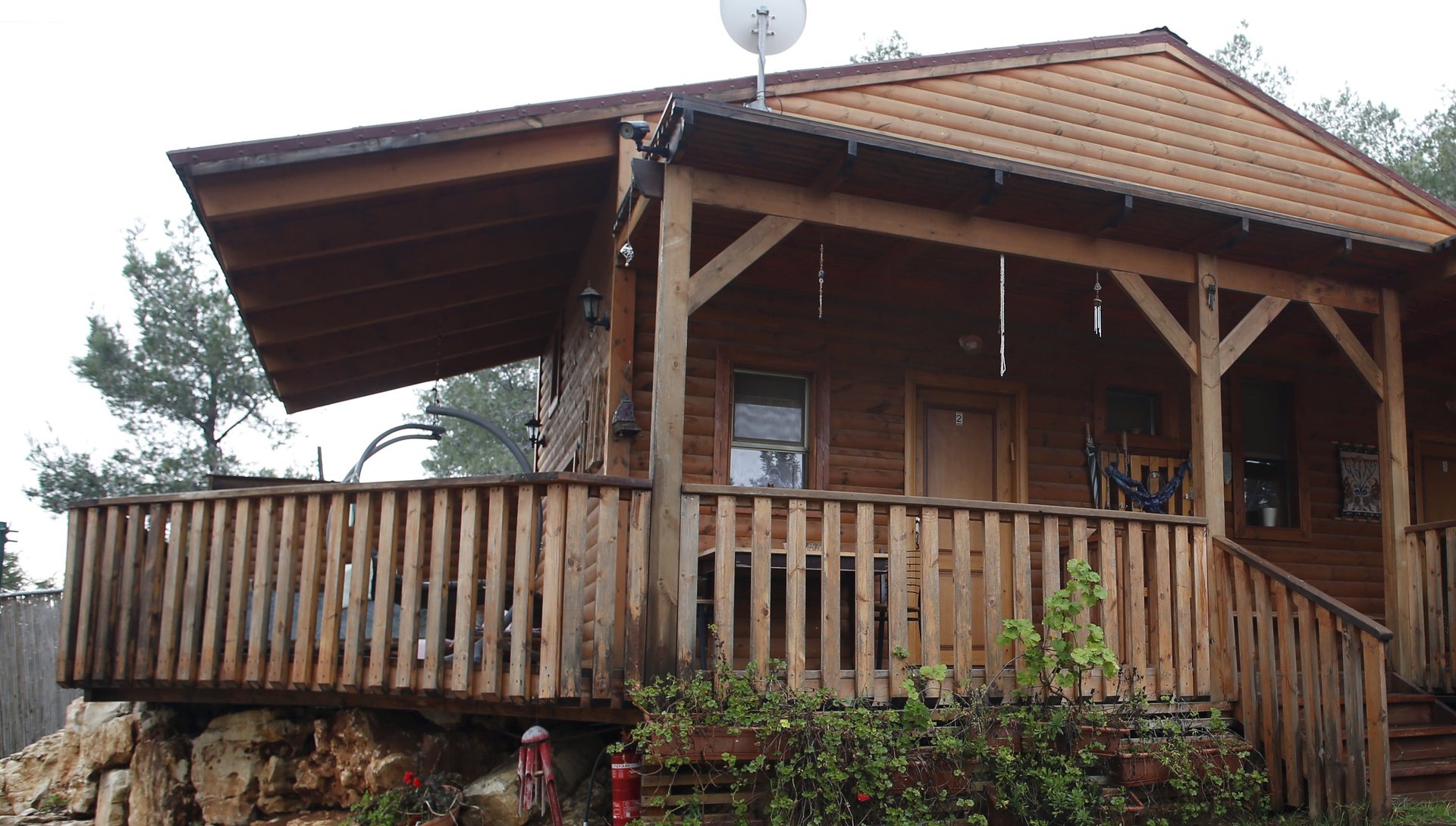

It’s the 50th anniversary of the Six-Day War this week, and inevitably the media are filling up with musings on the current state of the Israeli-Palestinian peace process.
But for a different view it’s worth reading an article in the Washington Post by my friend Dan Ephron, who argues that the salient characteristic of Israel’s occupation of the West Bank and Gaza, which it seized in 1967, is how normal it’s become.
So normal that there are Airbnbs everywhere.
Ephron spent a couple of weeks this spring traveling through Israeli settlements in the West Bank and staying in Airbnbs. They ranged from modern apartments in towns with thousands of inhabitants to a converted bus with a composting toilet in a village a few miles from Jerusalem.
Settlements in militarily occupied territory are illegal as far most of the world is concerned, but that hasn’t stopped more than 600,000 Israelis from moving into them. Many are in small villages scattered throughout the West Bank like holes in Swiss cheese, connected by roads that Palestinians aren’t allowed to travel on, thoroughly balkanizing the Palestinian towns that surround them.
Israel says it would be willing to evacuate many of these settlers if and when—but not before—it reaches a peace deal with the Palestinians. Ephron’s point is that settlements have become so normalized in the Israeli psyche—most Israelis are too young to a remember a time without them—that it’s almost impossible to imagine the country giving them up. And Airbnb rentals are a sign of that normalization.
On Airbnb’s map of the West Bank, nothing distinguishes Israeli rentals from Palestinian ones. (Facing criticism for overlooking the illegality of the settlements, the company told the Guardian last year, “We follow laws and regulations on where we can do business and investigate concerns raised about specific listings.”) To know which is where, you have to look for clues. These include the names of the host and location; whether it boasts of being a short drive away from Israeli cities or Palestinian ones; the price; or even the decorating style. This idyllic scene comes with a couple of dead giveaways: it’s identified as “Elkana, Israel” even though it’s beyond the Green Line, and as “25min from TLV [Tel Aviv].”
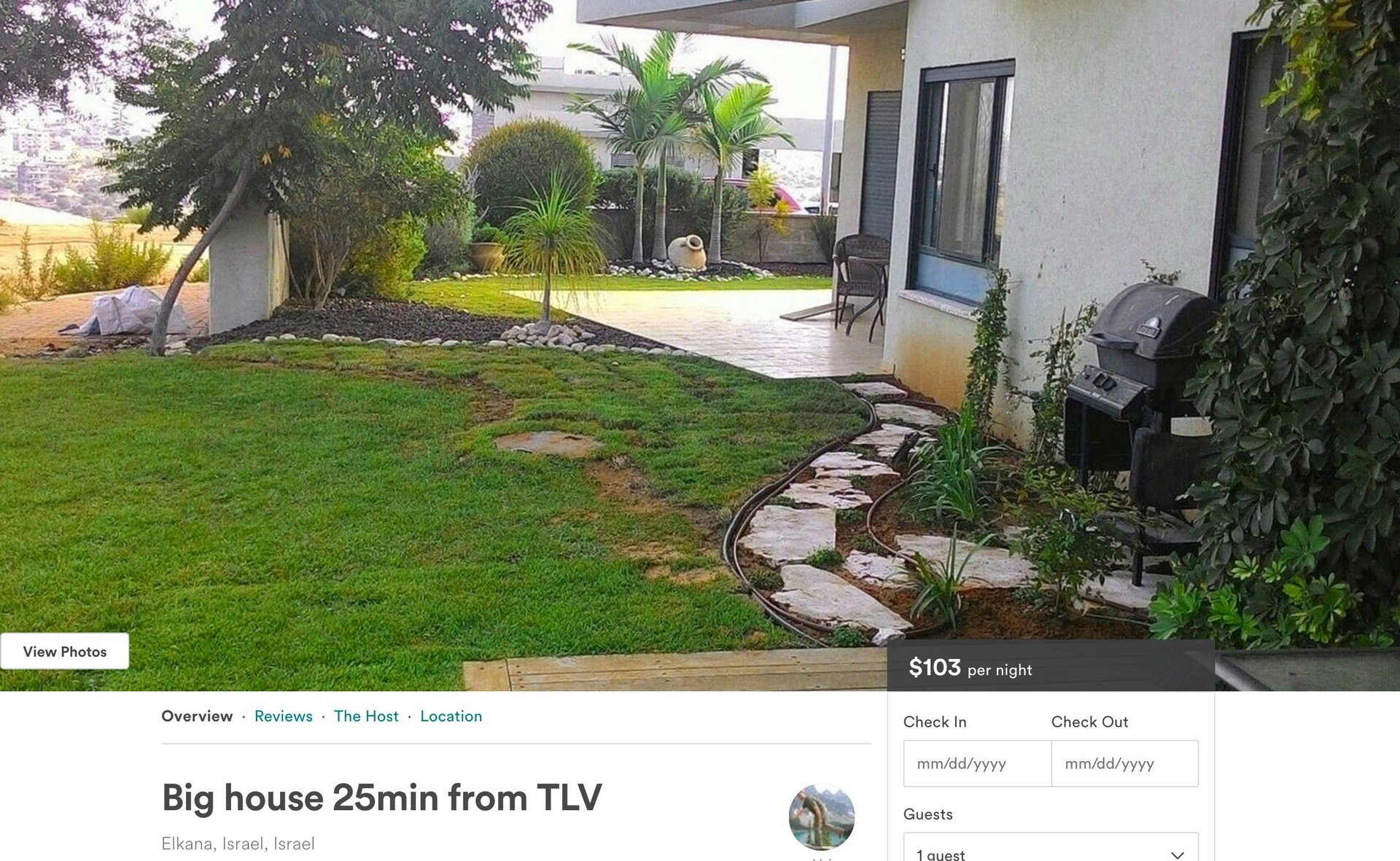
If you don’t know how to tell Hebrew and Arabic names apart, it’ll take slightly more sleuthing to identify Meir’s place in Alei Zahav, “a small village” about an eight-mile drive from the Green Line. Sure enough, scrolling down you discover that it’s “35 minutes from Tel Aviv and 50 minutes from Jerusalem.”
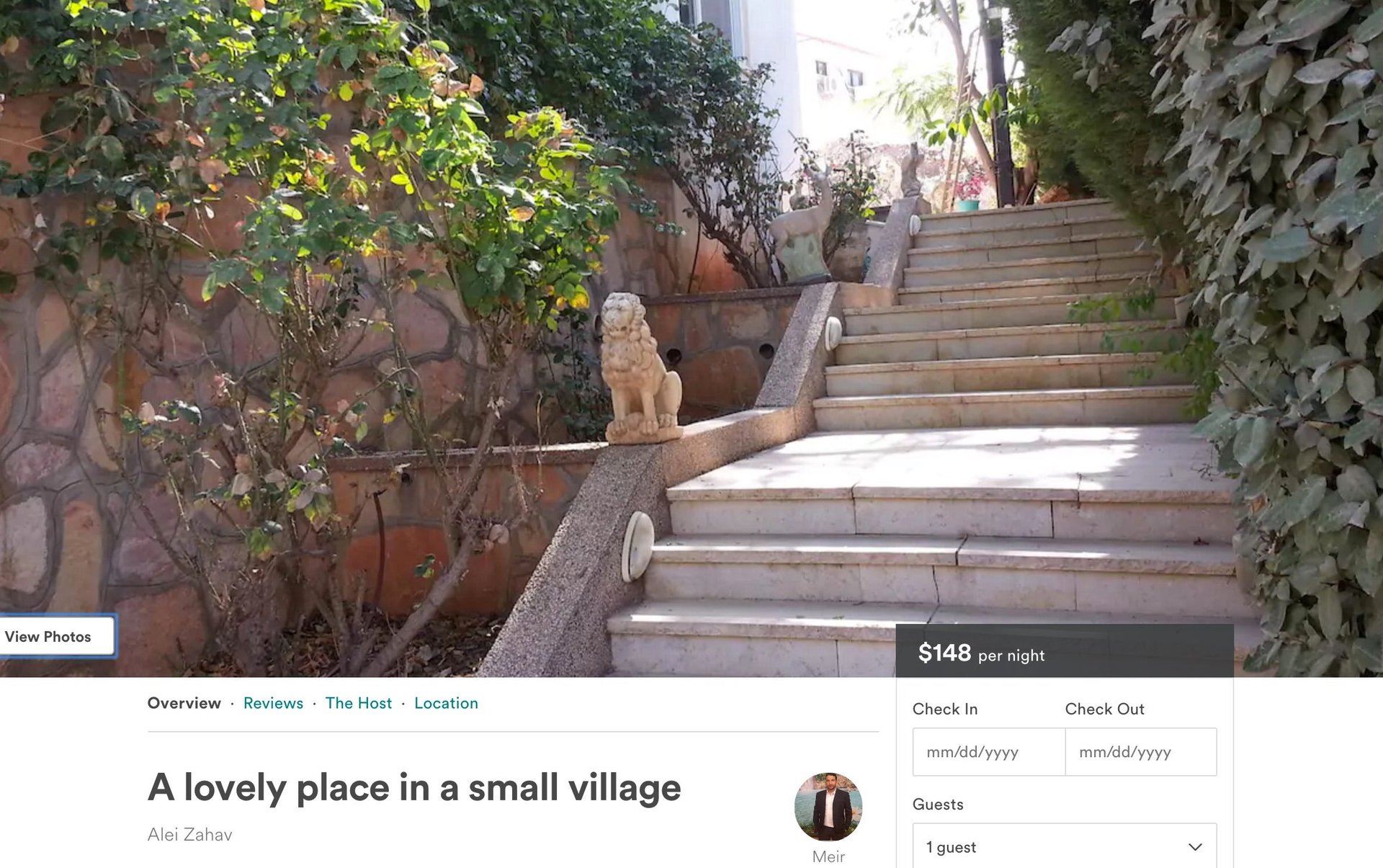
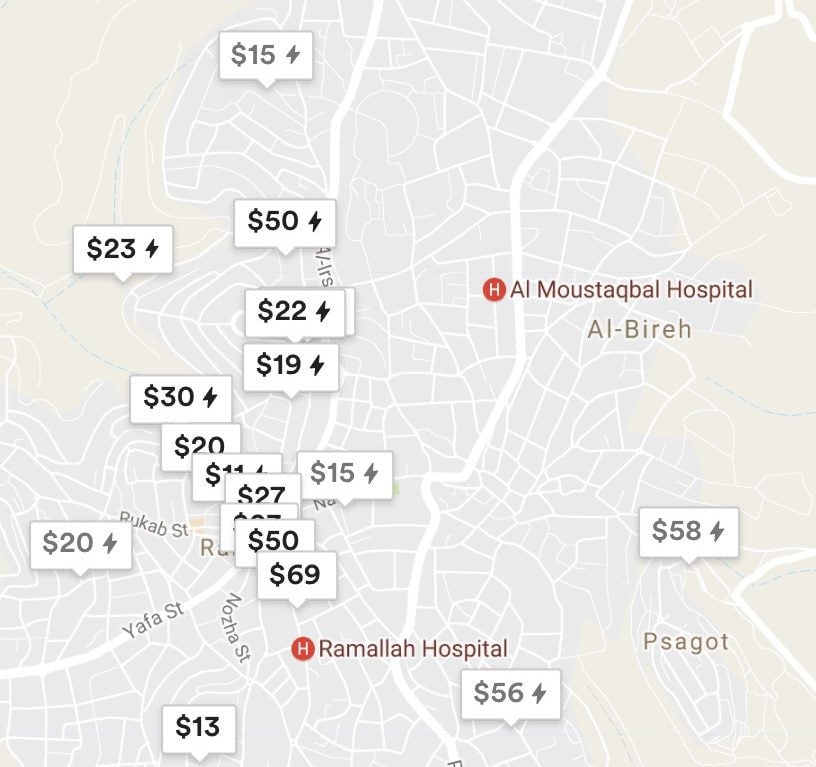
With no distinctions marked on the map, navigating Airbnb in the West Bank can create traps for the unwary. Want to stay in Ramallah, the de facto Palestinian capital? There are lots of places listed in the center of town. But perhaps you’d rather not be in the midst of the hustle and bustle. There, that place on the eastern outskirts for $58 looks like it might be nice. Shall we take a look?
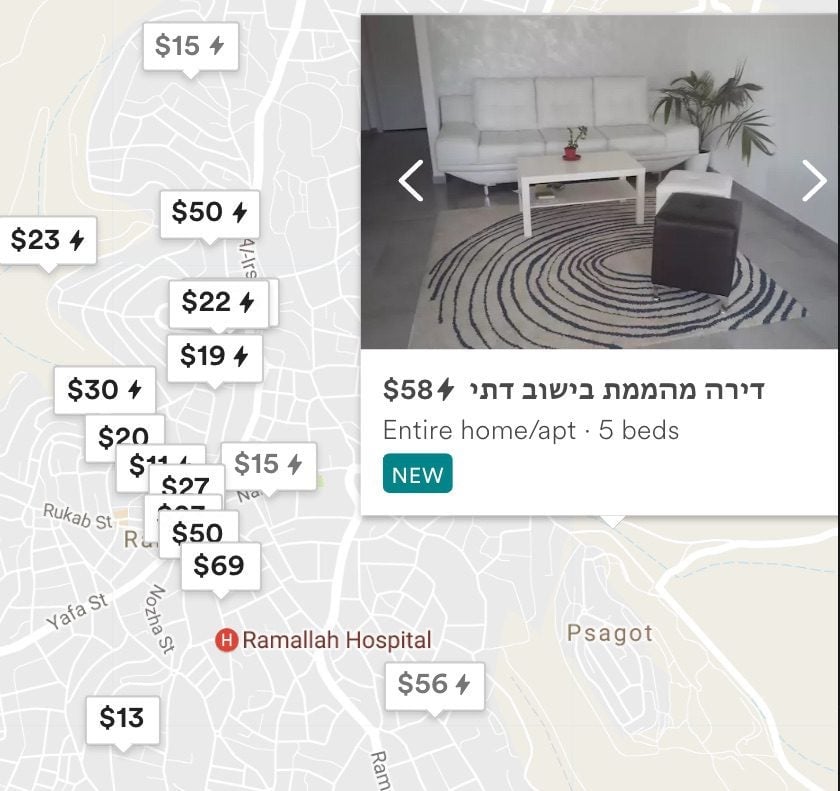
Oops—that isn’t Ramallah, it’s the Israeli settlement of Psagot! They are in fact separated by a valley and barbed wire fencing, but you’d never be able to tell from the map.
When I covered Israel and Palestine as a foreign correspondent a decade ago, there was a gym on the hill in eastern Ramallah, right across from Psagot. Local legend had it that a gym member had been shot by someone from the settlement while running on a treadmill—luckily, only in the backside.
There are times when even Airbnb seems to get confused about what is where. If you’re scanning the map for places to stay a little north of Ramallah, you might happen on Shiri’s homey hideaway, in a tiny Israeli settlement called Ateret, surrounded by Palestinian villages:
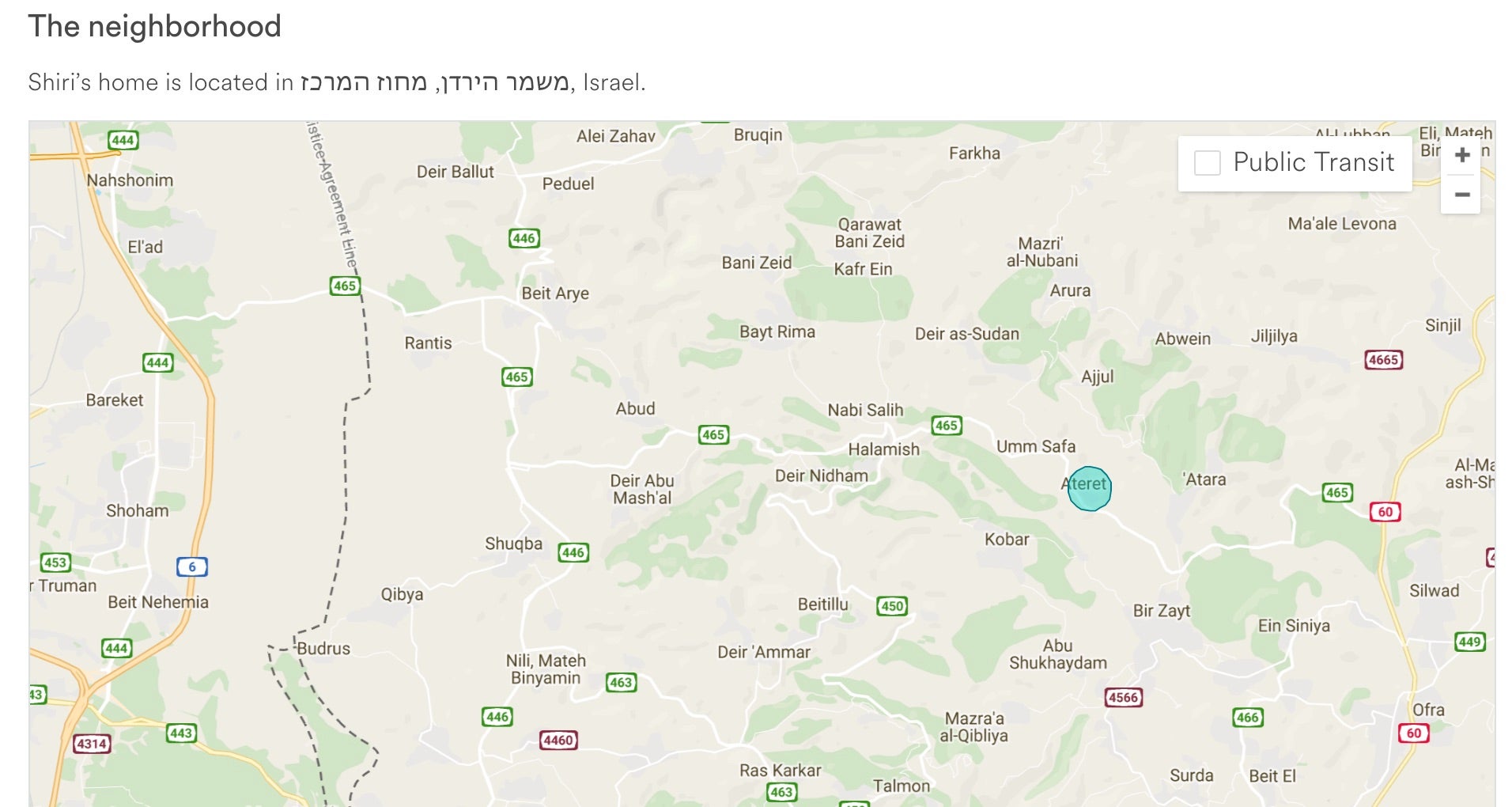
But the good people of Ateret will be mighty puzzled when you show up after your hour’s drive from Jerusalem (Google recommends a rather roundabout route to avoid all the Palestinian towns in the way), because there is no Shiri’s place there. She is actually in Mishmar Hayarden in the Galilee, way up in northern Israel. Some algorithmic error has located her square in the middle of the West Bank.
Fighting for a piece of paradise
You might think that the deeper into the West Bank one goes, the more rudimentary and cheaper the Israeli Airbnb homes become—after all, this is hostile territory. Not a bit of it. Kida, an outpost so small it isn’t named on Google Maps, offers this gorgeous vacation home “north of Jerusalem” (actually more than an hour’s drive, assuming you don’t hit any checkpoints) with a “spectacular view of the Jordan valley” (if you ignore the Palestinian town of Duma in the way) where you can enjoy a hot tub and a glass-blowing workshop. It’s $145 a night, $174 on weekends. A “sumptuous breakfast” costs extra.
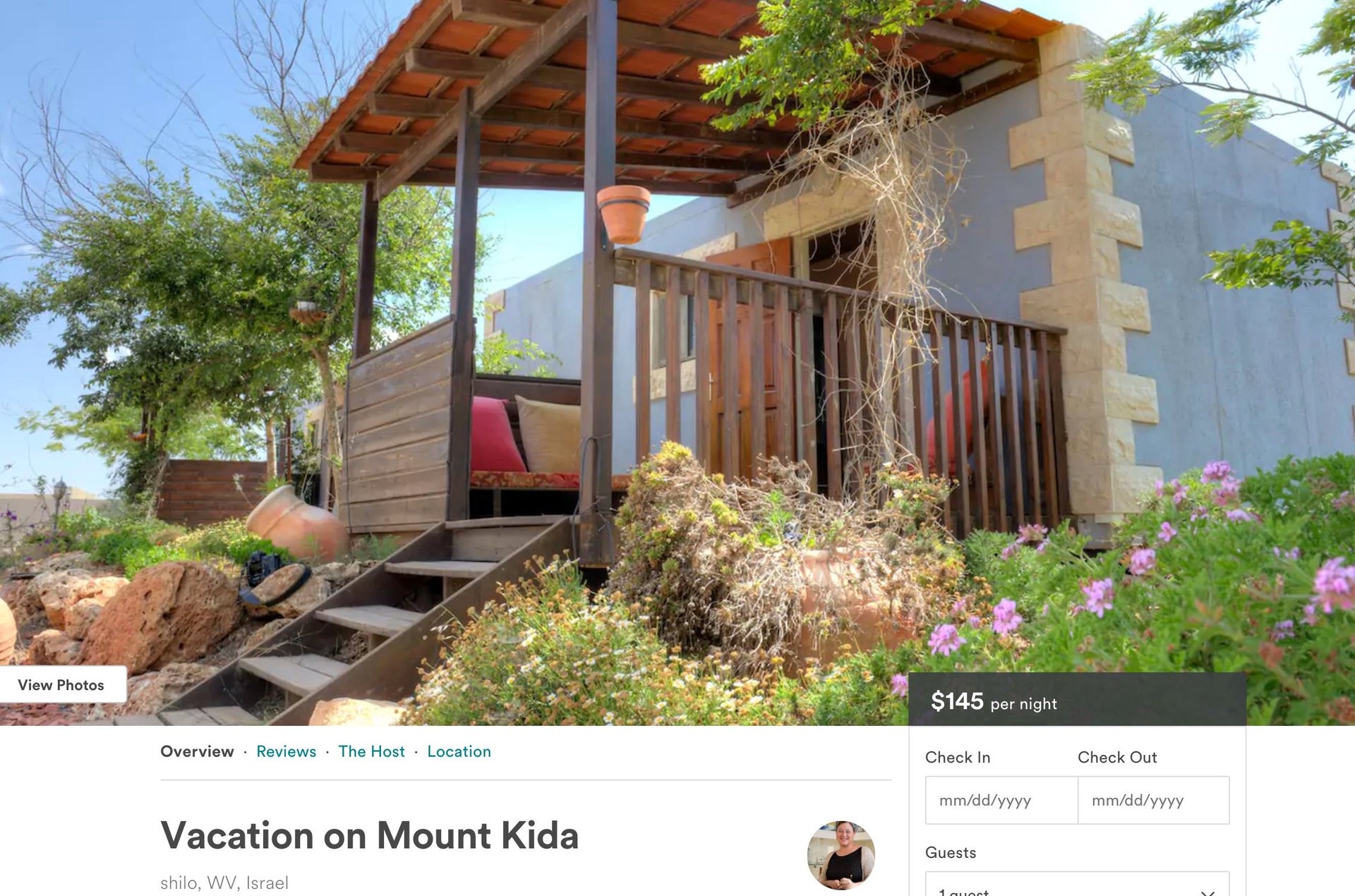
People who own a place of such beauty as Kida are not going to let it go quietly. Israel’s “disengagement” from Gaza in 2005, which involved uprooting 8,000 settlers from their homes there, was a national trauma that dominated politics for months. In the West Bank, while Israel might be able to keep the biggest settlements that are right on the Green Line, it will have to evacuate at least 137,000 people from more than 100 separate locations deeper in the West Bank, according to one widely accepted scenario.
Each of them is likely to put up as big a fight as Amona, a 40-family outpost that resisted court rulings and police pressure for three years before finally being cleared last February. That was only because the previous Palestinian owners of the land Amona was on had managed, in a rare court victory, to prove that it was illegally seized private land. But the government compensated the settlers: A week ago the army gave them the go-ahead to build an entirely new settlement, named Amichai, just a mile or so down the road from Kida—the first such authorization since 1992.
So if you want to know about the prospects for Israeli-Palestinian peace, look for an Airbnb in Amichai a year or two from now, and go visit. They’ll be happy to tell you.